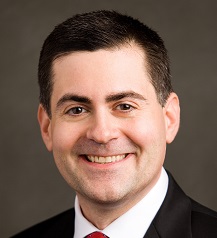By Jeff Brumley
The Southern Baptist Convention can cure the nation’s racial tensions if its churches will embrace congregational integration, said Russell Moore, president of the SBC’s Ethics and Religious Liberty Commission.
Moore has joined with other white conservative Christian leaders in pitching that message in the wake of police killings of blacks in places like Ferguson, Mo., and New York City.
“We may not agree in this country on every particular case and situation, but it’s high time we start listening to our African-American brothers and sisters in this country when they tell us they are experiencing a problem,” Moore wrote on the commission website.

Christians must recognize that when another part of the body is in pain, the entire Body of Christ suffers, he wrote. The commission has scheduled a spring summit titled “The Gospel and Racial Reconciliation” to tackle the subject.
“It’s time for us in Christian churches to not just talk about the gospel but live out the gospel by tearing down these dividing walls not only by learning and listening to one another but also by standing up and speaking out for one another,” Moore wrote.
‘Judged all week’
But some Baptists who have been hard at work for years trying to do just that say “learning and listening” and “tearing down these dividing walls” requires much more than inspirational writing, sermons and conferences.
African-American and white, these pastors say that even in the best of times, creating multiethnic churches is a lengthy and often painful process, and one in which the payoffs may seem years in the future.
And there are yet others who doubt it can be accomplished very often at all.
That’s mostly because efforts to create racially diverse churches are limited to integrating the pews, not leadership, said Darryl Aaron, the senior minister at First Baptist Church in Winston-Salem, N.C.

“The power structure is usually still in the hands of the dominant race, which is usually not blacks,” Aaron said.
Overcoming that barrier is challenging because many Christians, black and white, have a sense of ownership of their churches, he said. They are often reluctant to hand over the keys to the sanctuary or give them a say in musical selections.
Aside from preventing anything like the results Moore has predicted for church integration, such environments can actually be detrimental to some African-Americans, Aaron said. Church for them needs to be a safe place.
“Existentially, he has been judged all week, and now does he have to experience that on Sunday morning, too?”
‘Really tough for folks’
To avoid that kind of atmosphere requires congregations to accept that integrating essentially means opening all aspects of the church to the newcomers, said Tony Lankford, pastor of Park Avenue Baptist Church in Atlanta.
“If you want to be a diverse congregation you cannot ask them to come and visit your congregation,” he said. “Those voices have to be more than visitors — they have to be integral decision-makers within the congregation.”
That’s a journey Park Avenue began a decade ago, he said.
“After 140 years as an all-white church, now it’s rather racially diverse,” he said.
That’s been accomplished by making diversity a core value that guides all decisions that impact the congregation, he said.
That included staffing and how worship is planned. The latter was especially hard.
 “It means having different voices — it’s not a white worship service where it’s only white people doing everything,” Lankford said. “And music style — and that’s where it gets really tough for folks.”
“It means having different voices — it’s not a white worship service where it’s only white people doing everything,” Lankford said. “And music style — and that’s where it gets really tough for folks.”
The benefits have outweighed the difficulty, he said. They include providing Christians of different ethnicities, economic standing and neighborhoods to be able to know and identify with each other.
That’s helped tremendously during times when social tensions run high across the city or nation.
“When race issues come up, they are not generic, black-and-white issues” to members of Park Avenue Baptist, Lankford said.
It’s also helped ease racial tensions within the congregation, he added.
It’s powerful when “the guy you see on the street, who you normally would be afraid of, is serving you communion on Sunday morning,” Lankford said.
Churches must grapple with the fact that it takes time for a multiethnic approach to result in dissolved stereotypes and other gains, he said. It simply isn’t easy being a diverse congregation.
“Congregations need to realize that it’s not going to be easy for any all-white church to be integrated,” Lankford said. “They are going to have to give up the status quo, and a lot of churches don’t want to do that.”
No diversity, no Kingdom
But they are going to have to if they are to fulfil Christ’s calling, Aaron said.
“The church has always been called to have a prophetic voice, and it has to be about what God wants,” he said. That means finding a way to heed the Scripture’s call of “no east and no west, no Jew or Gentile and no male and no female.”
As hard as that is to accomplish, Aaron said he suspects that it must be tried anyway. Christians must take a critical view at the kind of covenant they want to have with God — and with one another.
“If you are saying the Kingdom of Heaven is at hand, I’m not sure you can have that without multiethnic churches,” Aaron said.
